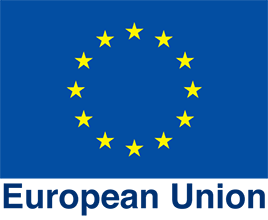1st Substantive Session of the Ad Hoc Open Ended Working Group Towards a Global Pact for the Environment
14-18 January 2019 | UN Office at Nairobi, Kenya
Summary Highlights: 14-18 January 2019
Highlights for Friday, 18 January 2019

During the last day of the first substantive session of the Ad hoc Open-Ended Working Group (AHWG), discussion focused on the agenda for the second substantive session. The Co-Chairs presented a revised agenda, including the agenda item “discussion of possible options to address possible gaps in international environmental law (IEL) and environment-related instruments.” A proposal to split this agenda item into two parts, i.e. discussion of possible gaps followed by discussion of possible options, did not reach consensus. As a compromise, delegates agreed to add the words “as appropriate” to the end of the agenda item, and to reflect the split in the annotations to the agenda. Delegates agreed that the second substantive session will be held from 18-20 March 2019. Discussion also focused on the inter-sessional process ahead, with several delegations supporting the creation of a synthesis report of submissions. The Co-Chairs reiterated their request for inputs to be submitted by 20 February 2019.
In the afternoon, the Co-Chairs presented an oral summary of the week’s discussions. They noted the session’s constructive, open and transparent and inclusive discussion, with agreement that the work should not undermine existing instruments, bodies and processes; and how some delegations underlined the importance of conducting work on a consensus basis with a view to a pragmatic outcome. In closing remarks the Co-Chairs thanked delegates and all participants.
Co-Chair Francisco António Duarte Lopes, closed the meeting at 4:01 pm.
IISD Reporting Services, through its Earth Negotiations Bulletin (ENB) Meeting Coverage, povided daily web coverage and a summary and analysis report from the 1st Substantive Session of the Ad Hoc Open Ended Working Group Towards a Global Pact for the Environment.
Photos by IISD/ENB | Mike Muzurakis
For photo reprint permissions, please follow instructions at our Attribution Regulations for Meeting Photo Usage Page.
+ Visit the web coverage for Friday, 18 January 2019













Highlights for Thursday, 17 January 2019

On Thursday, the first substantive session of the Ad hoc Open-Ended Working Group heard a brief report on the progress of deliberations this week in Nairobi. Co-Chair Francisco Duarte Lopes, Portugal, reported that many delegations had recognized the existence of gaps and challenges while others held different views, and further efforts would be needed to establish which gaps need to be addressed as part of the AHWG mandate.
Delegates began to consider arrangements for a second substantive session in Nairobi. Lopes proposed to delegates that the provisional agenda for the second session could feature consideration of possible options to address possible gaps in international environmental law (IEL) and environment-related instruments. The upcoming session would give delegations “space for sharing views” ahead of recommendations to the UNGA. Delegations and others, including civil society, were invited to provide further written inputs to the Co-Chairs, ideally by 20 February 2019. Discussion of various counter-proposals from delegations is to be taken up on Friday. Some voiced concerns about having enough time to prepare meaningful contributions to a second session.
Delegates also began to consider the final chapter of the Secretary-General’s report, which focuses on conclusions.
Among the issues raised were, inter alia:
- Attitudes to the Secretary-General’s report, and whether it had gone beyond its mandate;
- Whether the case has begun to be made for bringing all IEL principles into a new international instrument (pact);
- The contribution of non-binding and national-level approaches to environmental law, including the Stockholm and Rio Declarations;
- Limiting a new instrument to areas of IEL with no current institutional home;
- The AHWG’s need for new information inputs, including a comprehensive analysis of IEL principles and environment-related instruments; and
- Possible recommendations to the UNGA to encourage related work on IEL.
+ Visit the web coverage for Thursday, 17 January 2019









Highlights for Wednesday, 16 January 2019

The Ad hoc Open-ended Working Group (AHWG) opened on Wednesday with the observance of a minute of silence for the victims of Tuesday's suspected terrorist attack in Nairobi. The Co-Chairs led the tribute for the victims and their families, and in solidarity with the people and government of Kenya.
The AHWG resumed consideration of the Secretary-General’s report on “Gaps in international environmental law and environment-related instruments: towards a global pact for the environment” (A/73/419), covering chapters on, respectively, environment-related instruments (trade, investment, intellectual property, and human rights), gaps related to the governance structure of international environmental law (IEL), and gaps relating to the implementation and effectiveness of IEL.
Among the points raised were:
- The role of UNEP and the United Nations Environment Assembly, and their relationship to other parts of the IEL regime;
- The scope of the AHWG’s mandate regarding environment-related instruments, and the autonomy of MEAs;
- Gaps in the UNSG’s report, including corporate responsibility for environmental damage;
- The merits of an overarching normative framework for IEL, and the respective merits of specialization in MEAs;
- Links between implementation of IEL and means of implementation;
- The role of non-state actors and resources to facilitate their participation in the AHWG process;
- Inter-MEA coordination and synergies, including recognition of ongoing work, and whether synergies are best achieved at the national level;
- Links between the AHWG mandate and Agenda 2030 and the Sustainable Development Goals;
- Implementation at various scales, including local, regional, and global, and capacity building for stakeholders, including judges;
- The scope of the AHWG, including state and civil liability; and
- The merits of continuing with a facilitative model of compliance in MEAs.
Bilateral conversations also continued throughout the day, as delegations sought to clarify numerous issues in order to develop their positions.
+ Visit the web coverage for Wednesday, 16 January 2019








Highlights for Tuesday, 15 January 2019

On the second day of the first substantive session of the Ad hoc Open-ended Working Group (AHWG) established by the UN General Assembly to consider a technical and evidence-based report by the Secretary-General (A/73/419) identifying and assessing possible gaps in international environmental law (IEL) and environment-related instruments, delegations began a chapter-by-chapter consideration of its introduction and of chapters on gaps concerning principles of IEL and gaps relating to existing regulatory regimes.
Member states’ reflections related to, inter alia:
- Authoritative sources of principles of IEL and related instruments;
- Questions about the report’s analysis of gaps in the IEL system, including the evidence provided for this analysis;
- The report’s treatment of issues such as universalization and the role and underlying causes of fragmentation in IEL;
- The prioritization of universal participation and/or addressing implementation and compliance;
- The need for the AHWG to remain within its mandate;
- Consideration of established principles such as common but differentiated responsibilities and sovereignty over resources, and of the risk of undoing established context-specific principles in existing multilateral environmental agreements;
- Missing elements such as the intrinsic value of nature, planetary boundaries, and environmental justice;
- Consideration of new and emergent principles (e.g. intergenerational equity, environmental democracy, earth system approaches), including some already incorporated in regional environmental instruments, and consideration of principles in need of updating or qualification;
- The relationship between IEL and human rights, and other regimes; and
- The unintended consequences of certain principles such as non-regression and a possible weakening of new commitments in the context of IEL.
+ Visit the web coverage for Tuesday, 15 January 2019









Highlights for Monday, 14 January 2019

The first substantive session of the Ad Hoc Open Ended Working Group (AHWG) towards a Global Pact for the Environment (A/RES/72/277), convening at the United Nations headquarters in Nairobi, was opened Monday by Co-Chair Amal Mudallali, Lebanon.
Macharia Kamau, Ministry of Foreign Affairs, Kenya, acknowledged France’s role in bringing forward the initiative and described how the proposed pact could help address a fragmented international environmental law framework. The Acting Director of UN Environment (UNEP) and Assistant UN Secretary-General, Joyce Msuya, invited frank discussion and encouraged an inclusive process that engages with civil society and academia.
After adopting the AHWG’s provisional agenda (A/AC.289/3) and considering financial issues for the process, the AHWG Co-Chairs, Mudallali and Francisco António Duarte Lopes, Portugal, invited delegates to offer general statements. Many delegations welcomed the report of the UN Secretary-General, entitled “Gaps in international environmental law and environment-related instruments: towards a global pact for the environment” (A/73/419), while some sought to ensure a wider member state-led discussion on gaps.
The G-77/China highlighted links between implementation gaps in international environmental law and the lack of resources, technology transfer, and capacity. The European Union called for a wider discussion than the content of the Secretary-General’s report, and cautioned against any weakening of existing international environmental standards. The African Group called for greater focus on the 1992 and 2012 Rio Declarations. The United States observed that the Secretary-General’s report does not comply with its mandate and is not fully objective nor an accurate reference text. She cautioned that many of the “gaps” identified in the report reflect intentional decisions by member states in specific MEAs, and that the report shows bias towards the option of a global pact. The Russian Federation warned against the AHWG setting up a new framework for environmental protection, given the functional role of fragmentation in helping achieve consensus on international environmental matters. Many other delegations gave general statements.
+ Visit the web coverage for Monday, 14 January 2019








DOWNLOAD ENB REPORT
UNEP Resources
- Website and Documents for the 1st Substantive Session of the Ad Hoc Open Ended Working Group Towards a Global Pact for the Environment
- Provisional Annotated Agenda for the 1st Substantive Session of the Ad Hoc Open Ended Working Group Towards a Global Pact for the Environment
- Programme of Work for the 1st Substantive Session of the Ad Hoc Open Ended Working Group Towards a Global Pact for the Environment
- List of Signatories of the Jurists Call for a Global Environment Pact for the Environment (131 Jurists)
- Report of the UN Secretary-General on Gaps in International Environmental Law and Environment Related-instruments: Towards a Global Pact for the Environment (A/73/419)
- Report of the Ad Hoc Open-ended Working Group Established Pursuant to General Assembly Resolution 72/277 of 10 May 2018 Entitled “Towards a Global Pact for the Environment”
- General Assembly Resolution 72/277
- UNEP Website for Towards a Global Pact for the Environment
IISD Resources
- SDG - A Mailing List for News on Sustainable Development Policy
- SDG Update Newsletter - A compilation of news, commentary and upcoming events published on the SDG Knowledge Hub
- SDG Knowledge Hub - An Online Resource Center for News and Commentary Regarding the Implementation of the United Nations’ 2030 Agenda for Sustainable Development, including all 17 Sustainable Development Goals (SDGs)
- Linkages Update - International Environment and Sustainable Development News

 Specific funding for IISD Reporting Services coverage of the 1st Substantive Session of the Ad Hoc Open Ended Working Group Towards a Global Pact for the Environment, has been provided by the French Ministry of Europe and Foreign Affairs and the European Union (EU)
Specific funding for IISD Reporting Services coverage of the 1st Substantive Session of the Ad Hoc Open Ended Working Group Towards a Global Pact for the Environment, has been provided by the French Ministry of Europe and Foreign Affairs and the European Union (EU)